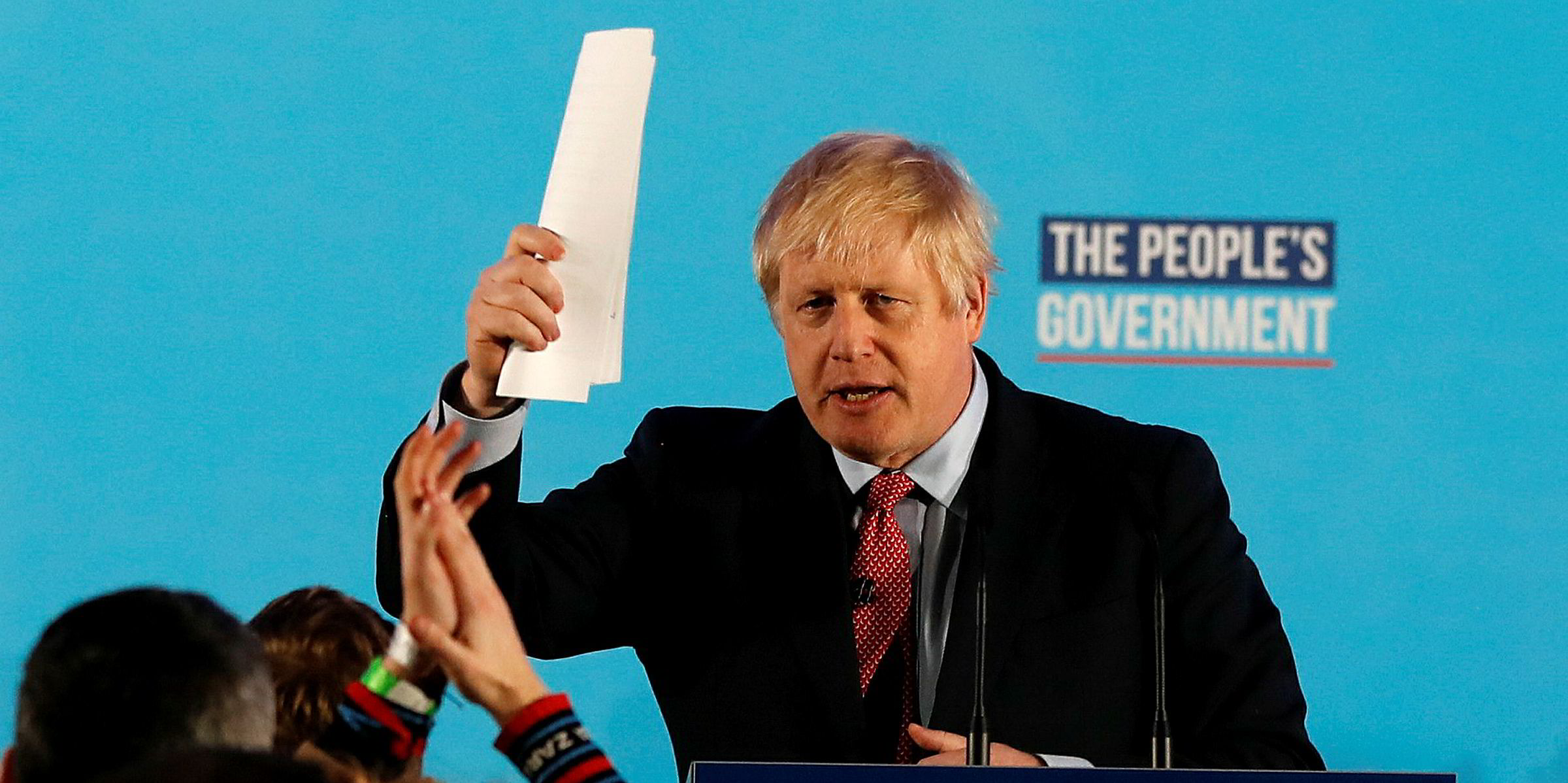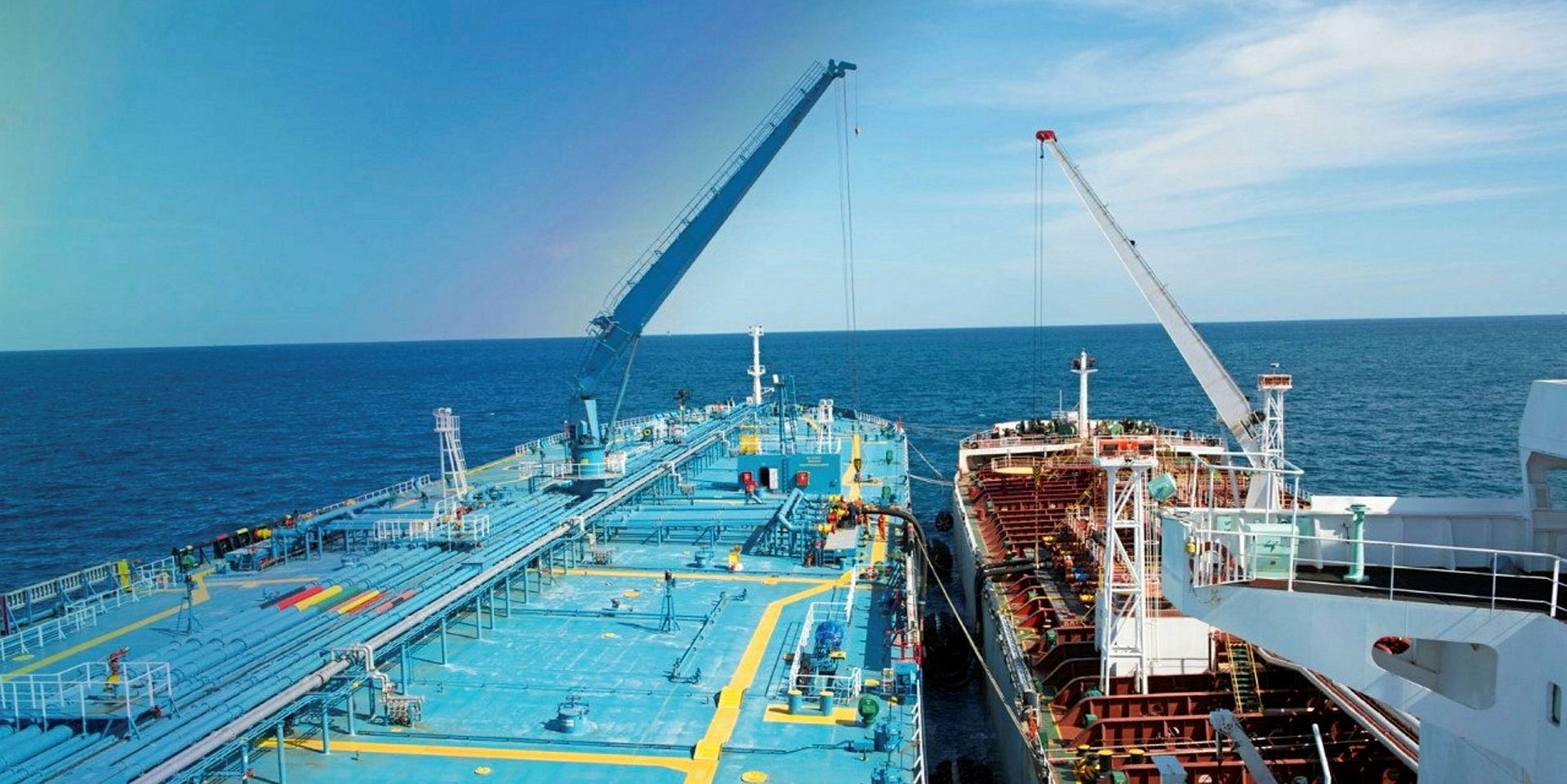UK shares were rising strongly on Friday morning following the Conservative general election victory that clears a path to a swift Brexit on 31 January.
The pound reached its highest level against the US dollar for 18 months as the Boris Johnson-led party secured a clear majority in parliament.
The FTSE 100 index of leading shares was up 1.68%, but shipping-related stocks did better than this.
London-listed tanker and marine services group James Fisher put on 8.5%, up at £20.16 ($27.04) each.
Shipbroker Clarksons was up 3.4% at £28.49, while rival Braemar rose 3.1% to £2.15.
London-listed Irish ferry group ICG saw its share price rise 6%. It offers services from Ireland to France, as well as across the Irish Sea.
Utility stocks were among the biggest beneficiaries as the Labour party's re-nationalisation threat lifted.
Bank stocks rose 3.5% on average, as traders concluded that the Bank of England is now much less likely to cut interest rates soon.
The pound was up three cents on the dollar to around $1.35, and it broke the €1.20 ($1.34) barrier for the first time since July 2016.
UK Chamber of Shipping Chief Executive Bob Sanguinetti commenting on the election result said: “We congratulate the Prime Minister on his election victory and look forward to working with him and his ministers to ensure we continue to have a world class shipping and maritime sector.
“We are at a crucial time in our history and industry and government need to work together to tackle climate change, invest in skills and training and promote trade with our close neighbours and partners across the globe to ensure economic growth and prosperity.”
No-deal risk remains
Analysts at Jefferies immediately came up with a basket of 20 UK stocks to buy, but no shipping-related companies featured.
It said: "The way Brexit gets done has huge implications for the UK economy.
"We expect the UK to formally leave the EU in the first few months of 2020. The challenge is trying to guess what long-term relationship the government pursues with its EU partners."
It is estimating a 60% likelihood for Johnson's hard Brexit deal, but still sees a 20% chance of a softer Brexit.
A no-deal exit remains a 20% chance as well.
"In any event, the status quo in terms of trade and regulatory alignment appears almost certain for 2020," it added.
Sarah Carlson, Moody’s senior vice president, predicted another deadline crisis in 2020 if Johnson insisted on trying to agree an EU trade deal in a year.
“Today’s result of a Conservative majority means that Brexit is likely to occur quite quickly," she said.
"However, Brexit-related uncertainty is unlikely to abate for more than a few months, given the relatively short transition period to which the Prime Minister is currently committed."
Nautilus wants support for maritime manifesto
Maritime professionals’ union Nautilus International called on the newly-elected UK government to commit to ensuring "a strong and prosperous British maritime sector post-Brexit".
It wants the state's support for core objectives set out in its "manifesto."
This calls for significant investment in maritime education and training; stricter conditions over the issue of UK Certificates of Equivalent Competency (CECs), tighter controls on work permits and visas; the promotion of collective bargaining and the application of the National Minimum Wage to all seafarers serving in UK waters.
Ports group ready to work with new government
Tim Morris, CEO of the UK Major Ports Group, said: “We look forward to working constructively and urgently with the new government.”
The group is the voice for operators handling 75% of the UK’s port volumes
Morris added: “On Brexit, ports have been working hard for some time to cope with disruption risk.
"But there is now a tremendous amount of work to do both in terms of making the ‘one region two systems’ arrangements for Northern Ireland work and on the vital practical detail of the future relationship with EU.”
He pointed to the potential for boosting post-Brexit capability to trade with the world, growing jobs and prosperity in coastal communities and enabling a more sustainable, net-zero UK.
"The ports are ready and ambitious to do their bit. We look forward to working with the government and politicians of all parties so they can effectively play their part in policy areas like connectivity, planning reform, sustainability, skills and trade.”






